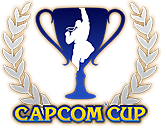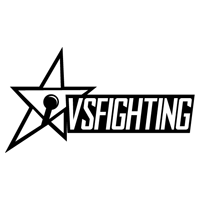A fighting game is a genre of video game that involves combat between two or more characters. Fighting game combat often features mechanics such as blocking, grappling, counter-attacking, and chaining attacks together into "combos". Characters generally engage in battle using hand-to-hand combat—often some form of martial arts. The fighting game genre is related to, but distinct from, the beat 'em up genre, which pits large numbers of computer-controlled enemies against one or more player characters.

The Evolution Championship Series, commonly known as Evo, is an American annual esports event that focuses exclusively on fighting games. The tournaments are completely open and use the double elimination format. As with Super Battle Opera, contestants travel from all over the world to participate, most notably from Japan. The first Evolution was originally held as a Super Street Fighter II Turbo and Street Fighter Alpha 2 tournament called the Battle by the Bay. It changed its name to Evo in 2002. Every successive tournament has seen an increase of attendees. It has been held at various venues across the Las Vegas Valley since 2005. As of 2021, the event is jointly owned by Sony Interactive Entertainment and the Endeavor esports venture RTS.

Capcom Cup is an annual fighting game tournament specifically focused on the Street Fighter series. The event's first incarnation was in 2013 which featured Super Street Fighter IV: Arcade Edition version 2012, Ultimate Marvel vs. Capcom 3, and Street Fighter X Tekken version 2013 as the three main games each with 8 qualifiers. In 2014, Capcom Cup was an Ultra Street Fighter IV exclusive tournament with 16 qualifiers. The 2015 Capcom Cup was doubled to a 32-man format and was later increased to a 48-man format beginning with Capcom Cup IX in 2022–23. The series of qualifying events for the tournament are known as the Capcom Pro Tour and include many of the largest, most prestigious pre-existing fighting game tournaments such as Evolution Championship Series and DreamHack.

Lee Seon-woo, known as Infiltration, is a professional esports player from Seoul, South Korea, specializing in fighting games. Lee is a six-time Evolution Championship Series (EVO) champion; winning Super Street Fighter IV Arcade Edition v2012 in 2012, Street Fighter X Tekken in 2012 and 2013, Street Fighter V in 2016 and 2018 and Samurai Shodown in 2019.

Alex Valle, also known as CaliPower and Mr. Street Fighter, is a Peruvian-American professional fighting game player. Valle is mainly a Ryu specialist and is considered one of the most influential people within the fighting game community.
The 2016 Evolution Championship Series was a fighting game event held in Las Vegas on July 15–17. Being hosted on the twentieth anniversary of the Evolution Championship Series, the event offered tournaments for various video games, including Street Fighter V, Super Smash Bros. Melee, and Pokkén Tournament. Participation reached record-breaking numbers, with over 5,000 people registering for the Street Fighter competition alone. 2016 was the first time the Evo Grand Finals were held in an arena and were broadcast by ESPN2 in addition to Twitch.
The 2015 Evolution Championship Series was a fighting game event held in Las Vegas on July 17–19. The event featured a major tournament for nine fighting games, including the largest Super Smash Bros. tournament up to that point and a highly popular Ultra Street Fighter IV tournament. The Street Fighter IV tournament was won by Yusuke Momochi, defeating GamerBee in the Grand Finals.

Community Effort Orlando is an annual fighting game event held in Daytona Beach, Florida. Prior to 2018, CEO was held in Orlando, Florida. Introduced in 2010 and organized by Alex Jebailey, the event is known for its strong ties to the fighting game community. Fighting game players compete in a wrestling ring during the event's tournaments, and CEO has been a mainstay of the Capcom Pro Tour since its establishment in 2014. An annual side-event titled CEOtaku was initiated in 2015.
The 2014 Evolution Championship Series was a fighting game event held in at Westgate Las Vegas on July 11–13. The event featured a major tournament for eight fighting games, including Ultra Street Fighter IV and BlazBlue: Chrono Phantasma. The event was part of the first Capcom Pro Tour.
The 2013 Evolution Championship Series was a fighting game event held at Paris Las Vegas on July 12–14. The event featured a major tournament for nine fighting games, including Super Street Fighter IV: Arcade Edition and Injustice: Gods Among Us. The event's Super Smash Bros. Melee livestream was controversially blocked by Nintendo of America, though the company decided to allow the tournament to be streamed after being faced with community backlash.

Hajime Taniguchi, better known as Tokido, is a Japanese fighting game player who plays the King of Fighters and Street Fighter franchises. He is known for playing multiple fighting games on a competitive level in addition to Street Fighter, including Tekken, Marvel vs Capcom 3, and BlazBlue. Tokido is a three-time EVO champion, having won Capcom vs. SNK 2 in 2002 as well as winning Super Street Fighter II Turbo in 2007 and Street Fighter V ten years later. Tokido has had 19+ Evolution top 8 finishes in 9 different games across 15 years, a feat surpassed only by Justin Wong.
The 2012 Evolution Championship Series was a fighting game event held at Caesars Palace, Las Vegas on July 6–8. The event featured a major tournament for six fighting games, including Super Street Fighter IV: Arcade Edition and Ultimate Marvel vs. Capcom 3, as well as various smaller-scale competitions.
The Canada Cup is an annual Canadian fighting game event founded and organized by Lap Chi Duong. The event was launched as the Calgary Cup in 2009 and was initially held in Calgary, Alberta, but the tournament moved to Toronto, Ontario shortly after, returning to Calgary every few years. The Canada Cup is a major Street Fighter tournament, generally being the final event in the annual Capcom Pro Tour.
The 2017 Evolution Championship Series was a fighting game event held in Las Vegas on July 14–16 that was part of the long-running Evolution Championship Series. The event offered tournaments for various fighting games, such as Street Fighter V, Tekken 7, and Injustice 2. Over 10,000 people registered for the event with Tekken 7 receiving double the number of players from the previous year.

VSFighting is a tournament series of annual esports events that focuses on competitive fighting games. The tournament is open to all. VSF is the flagship tournament to Electronic Dojo, a fighting games community based in the West Midlands, UK.
The 2018 Japanese Evolution Championship Series, commonly referred to as Evo Japan 2018, was a fighting game event held in Tokyo, Japan on January 26–28. As mentioned in its namesake, the event was the first Evo event to take place in Japan and outside of the United States. The event offered tournaments for various fighting games, such as Street Fighter V, Tekken 7, and Super Smash Bros. for Wii U. Over 5,000 people registered for the event with Street Fighter V and Tekken 7's entrant numbers being on par with their respective Evo 2017 numbers.
The 2018 Evolution Championship Series was a fighting game event held in Las Vegas on August 3 to 5 as part of the long-running Evolution Championship Series. The event offered tournaments for various video games, including Street Fighter V, Tekken 7, and Dragon Ball FighterZ. Over 10,000 people registered for the event with Dragon Ball FighterZ receiving the most entrants.

Ryan Joseph Hart, also known as Prodigal Son, Tsuujin, Robotnik, The Terminator and NeriahSensei, is a British professional fighting game player. He specialises in 2D and 3D fighter games released by Capcom, Bandai Namco, Sega, Midway, NetherRealm Studios and SNK. Ryan holds numerous National, European and World titles and has won the Evolution Championships twice. Hart also holds four world records within the Guinness World Record's for most international Street Fighter competition wins, most well-travelled fighting game champion, the longest winning streak on Street Fighter IV, and the most consecutive opponents on Street Fighter V. While Hart is predominantly known for his professional gaming career, he is also a commentator, tournament organiser, author, presenter, event host, model, translator and content creator.
The 2020 Evolution Championship Series was a planned fighting game event. While a physical event was to have been in Las Vegas from July 31 to August 2, 2020, as part of the long-running Evolution Championship Series, due to the COVID-19 pandemic, the organizations cancelled the physical event, and instead planned a series of online events running from July 4 to August 2, 2020. The online event was later cancelled due to sexual misconduct allegations against organizer and co-founder Joey Cuellar.
The 2022 Evolution Championship Series was a fighting game event held in Las Vegas from August 5 to 7, 2022 as part of the long-running Evolution Championship Series. The event offered tournaments for various video games, including Street Fighter V, Tekken 7, and Dragon Ball FighterZ, as well as the newly released Melty Blood: Type Lumina, Granblue Fantasy Versus and The King of Fighters XV. It also marks the first time that Skullgirls was a main event game 10 years after its release. This is the first tournament held in-person since 2019. This is the first tournament sponsored under the co-sponsors Sony Corporation and Pokimane-led RTS.










